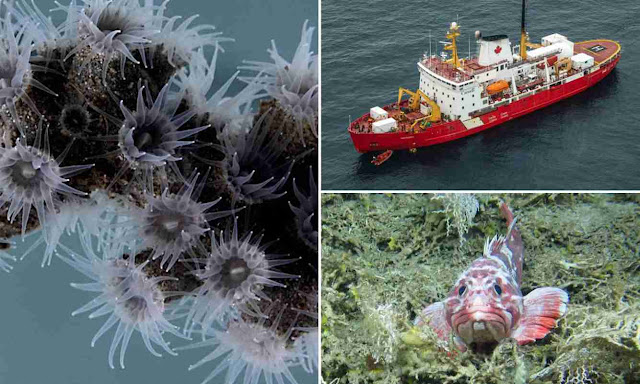Oceans cover 70% of the Earth surface still we don't have a comprehensive picture of what lies in deeper parts of the ocean. Researchers of the ATLAS project found 12 new species in the deep-sea discovery.
The deep-sea is a region that receives minuscule or no sunlight. It starts getting darker from 200 metres below the surface of the ocean, on average oceans are about 3,700 metres deep.
The deep-sea was considered inhospitable due to the freezing temperatures, low oxygen levels and high air pressure. But this changes in the late 1800s, when scientist found evidence of life in the deeper part of the ocean.
Recently, joined-forces of 80 researchers was created by "ATLAS Project" to explore the North Atlantic ocean's deepest parts, helping them in this Quest the robotic divers designed to spy on the organisms inhabiting the deep sea. Researchers from 13 countries took part in this project, spanning a wide range of interests from physics to ocean chemistry to biology.
Their 4-years long search let them to discovered 12 new species including Sea mosses, molluscs and corals. Sponges and deep-sea corals provide food and shelter to other organisms and are called deep-sea cities.
Speaking to the BBC professor Murray Roberts from the University of Edinburgh said:
“It's like understanding the rainforest is an important place for biodiversity on the land; the same is true of the deep sea - there are important places that need to be protected and, crucially, they are all connected.”
The researchers also found roughly 35 new species in previously unknown areas. Scientists warn that these organisms, including the undiscovered ones, are at the risk of getting extinct and their biggest threat is the climate change.
We know that oceans soak up a large chunk of carbon dioxide circulating in the atmosphere but with atmospheric CO2 levels reaching record levels, the oceans are hard at work absorbing this gas and it is acidifying the water, a phenomenon which can weaken the health of Coral habitats.
Eventually, these habitats might lose the ability to support deep-sea creatures with the discovery of 12 new species scientists have just crashed the surface the oceans still need exploring and perhaps more safeguarding from climate change.





0 Comments